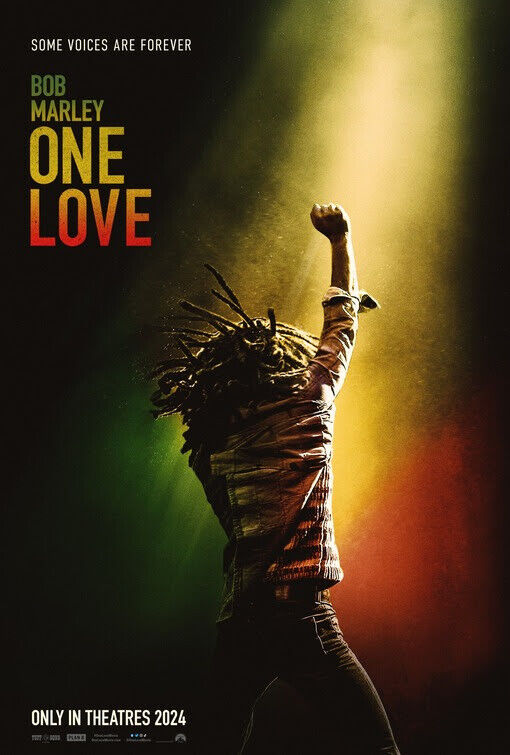Originally Published in the March 8th Print Publication
Bob Marley: One Love was a respectful, en- tertaining, and informative film. It pays it’s dues to the life of Bob Marley and provides a stellar viewing experience.
The acting was spectacular and the director, Reinaldo Marcus Green did a fantastic job finding the people for their roles in the movie. Kingsley Ben-Adir was Bob Marley, Lashana Lynch was Rita Marley, and James Norton as Chris Blackwell. The acting for this movie was excellent and the creators did an incredible job choosing who did what role.
The budget for Bob Marley: One Love was around $70 million, but whether or not they will make a profit has yet to be seen as the movie did just come out on February 14. So far, the movie has generated over $120 million in box office revenue. Bob Marley: One Love doesn’t follow a traditional plot structure like a fictional movie would. Instead, it’s a docu- mentary that explores the life, music, and leg- acy of Bob Marley. The film takes viewers on a journey through Marley’s life, from his early days in Jamaica to his rise as a global music icon. It examines his impact on music, culture, and society, highlighting his messages of love, unity, and social justice. It also follows the lives of his family as well, and how influential they were throughout Bob Marley’s life, as it also explores how many challenges that they faced.
Something that was extremely interesting in the movie was the storytelling. It shows many moments throughout the life of Bob Marley that not many people were able to see. The blend that the creators chose was very well done. The film shows the electrifying con- certs, the creation of some of his songs, along with some of the challenges he faced through- out his musical career. This movie did a really good job explaining what the story was, along with displaying the message that Bob Marley was trying to tell the people with his songs.
The film masterfully encapsulated Bob Marley’s profound message of unity, love, and social justice, resonating with audiences globally. Through his music, Marley became a voice for the oppressed, advocating for peace amid turmoil and hope amidst despair. His lyrics were not just melodies but anthems for change, addressing themes of poverty, in- equality, and the struggles of the marginalized. From “Redemption Song” to “Get Up, Stand Up,” each composition was a call to action, inspiring generations to fight for their rights and embrace a world where love transcends barriers. The film vividly portrayed Marley’s unwavering commitment to these ideals, immortalizing his legacy beyond music.











